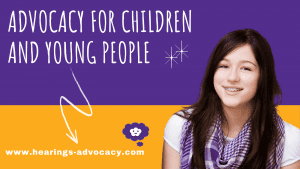Advocacy workers
Information for newly qualified advocacy workers
If you haven’t had any dealings with the Children’s Hearings System before, this section of our website should help you.
Going to a Hearing can be an intimidating experience. Advocacy workers have a key role to play to help prepare and empower children and young people before, during and after their Hearing and ensure their voice is heard.
SCRA has a variety of information materials to help prepare children and young people for their Hearing.
You can also access the Hearings Advocacy website.
A referral
Children and young people are referred to the Reporter from a number of sources, including police, social work, health and education.
They are referred because some aspect of their life is giving cause for concern. Most children and young people are referred on care and protection grounds. Only a small number are referred on offence grounds.
Some examples of grounds are; a lack of parental care, being the victim of a Schedule 1 offence (offences committed against a child), when there are concerns about a child’s conduct, when they are misusing drugs or alcohol, when they fail to attend school or when they allegedly commit an offence.
Anyone can make a referral, including concerned relatives or neighbours, as well as professionals. In some areas of Scotland there is a multi-agency approach to referrals and there may be protocols already in existence in your area.
The Reporter
The Reporter investigates each referral, assesses the evidence and determines whether compulsory measures of intervention are required.
If the Reporter decides that there is sufficient evidence and that compulsory measures of intervention are required, a Children’s Hearing will be held.
Before a Hearing
Coming to a Children’s Hearing can be an anxious time for children, young people and their families. Often they have limited knowledge of what will happen. Advocacy workers can play a really vital role in helping them understand what will happen and answer any questions they may have.
If a child or young person you are working with is particularly anxious about coming to a Hearing, a pre-Hearing visit can be arranged to allow them to come and see where the Hearing will be. Contact your local Reporter’s office to arrange this.
Children’s Hearings
The Hearing (sometimes known as the Panel) consists of three Panel Members, all trained volunteers from the local community.
The Hearing is organised by the Children’s Reporter, who also attends the Hearing, but they do not take any part in the decision making. The decisions are taken by the three Panel Members. The Reporter is present to support fair and legal process and to fulfil a statutory function, the main one being to keep a report of the proceedings.
If the legal reasons for the child or young person’s referral are accepted by the child or young person and family, the Hearing listens to the child or young person’s circumstances and then decides what measures are required. The child or young person may require a particular type of treatment or intervention, they may be placed with foster carers, a residential unit or in secure accommodation.
The most likely outcome will be that the Hearing may decide that the child or young person should remain at home with support from the local authority under a Compulsory Supervision Order.
More information
More detailed information about the Children’s Hearings System, including some frequently asked questions is available on this website.
If you have a question about a specific case, please contact your local Reporter. Contact details for each of our local offices is available in the contact us section of our website.
If you have a general question, please contact communications@scra.gov.uk.
Receive our e-news bulletin
Enter email to sign up to our newsletter
Thank you for signing up to the SCRA Newsletter!

